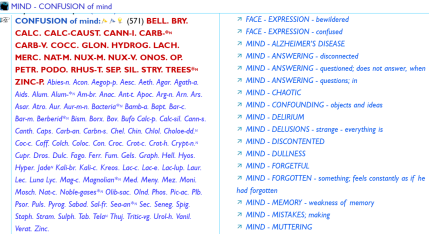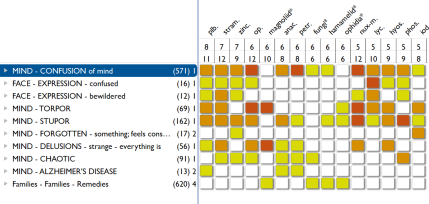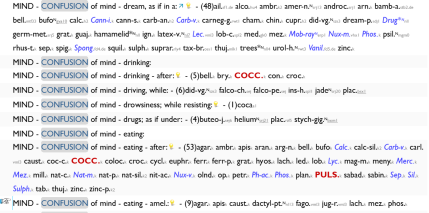Confusion
-
Self-conscious distress
-
Synonyms
- Abashment, chagrin, embarrassment, discomposure
- A lack of regular order/ arrangement: chaos, clutter, confusedness, derangement, disarray, disorderliness, topsy-turviness
-
Antonyms
- Self-awareness and knowing, a state of sound readiness, preparedness
- Order - a way or condition of being arranged
- Categorization, sequence
Situation / characterization
A state of confusion may arise when a person who is accustomed to a regimented life is plunged into a situation lacking in systematization and demanding of spontaneity. Or perhaps when in a foreign environment where there is a different language…
Confusion- when the systems of the body go into disarray under the influence of strong drugs/ emotions/ external stressor/ physical trauma EG head injury inducing amnesia/ memory loss. In chronic form- Alzheimers, where a person’s confusion reaches a stage where they cannot recognize loved ones and are confused by even slight changes to patterned routines. The cognitive function is impaired to an extent where small changes to perceived sense of order can lead to derangement and confusion.
A person who habitually lives in a chaotic environment, lacking structure in their lives (the musician, artist, or drunk!) may be lacking the mechanisms with which to engage in the more regimented structure of society as a whole. Their ailments may stem from this ostracising from the status quo (anxiety, loneliness, abashment, chagrin- Psora). Ailments from embarrassment when seen by others to be in a state of confusion over simple things- ‘where did I leave my handbag/ keys/ coat’, getting on the wrong train, forgetting his pin number.
Opposite expression
Someone with an overly ordered existence may suffer with too much rigidity/ fixity, lacking spontaneity and reacting negatively when confronted with disorder/ chaos. May suffer from an inability to let things ‘flow naturally’, having a need to stamp their own systematization over proceedings.



